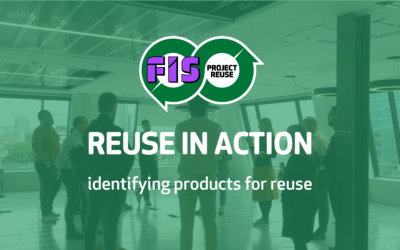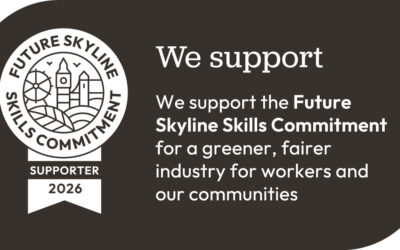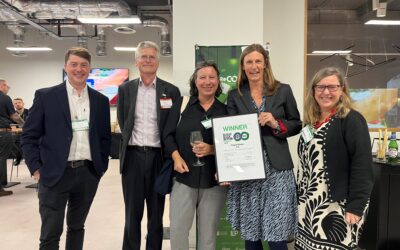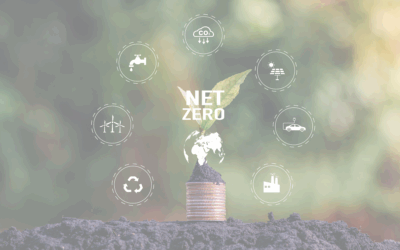Sustainability in the Finishes and Interiors Sector
FIS is committed to taking a pro-active lead, not just in supporting the UK ambition to net zero carbon by 2050, but delivering profound transformation within our supply chain on all aspects of ethical and environmental sustainability.
In this toolkit we look at some of the key actions that you can take and also some of the wider sector initiatives that can support your business in setting a sustainability strategy. The aim is to support companies in meeting the ethical and environmental aspects of sustainability considered from the three dimension of planet, people and profit across the entire construction supply chain. Definitions of sustainability do vary, but focus is on where our sector can make a positive impact in line with the UN Sustainability goals and the Net Zero agenda in the UK.
Introducing Sustainability
General Principles of sustainability
FIS 10 Golden Rules for Waste Reduction
FIS Project Reuse - Delivering circularity in fit-out
Led by a group of intrepid pioneers, FIS has taken the plunge and set up a re-use pilot storage facility in East London. This facility will help to isolate and resolve the issues that are blocking a more systemic approach to reuse of product in the fit-out world. To find out more and see how you can make material available or find re-used products, follow this link.
FIS Pre-Cycle Agreement
The FIS PreCycle agreement provides a direct link between the manufacturer and user of a construction product to ensure that at end-of-service-life, the material can be recovered, repurposed, recycled or processed in the most environmentally way by keeping the product at its highest value application and importantly avoiding landfill.
Sector Specific Activities
Flooring
Plasterboard
Ceilings
Training
FIS has partnered with the Supply Chain Sustainability School
Zero carbon resources for finishes and interiors
Free-to-access training materials, videos, webinars and resources.
FREE sustainability learning pathway “‘FIS Sustainability Awareness: Doing Business Better”.
Start your Net Zero journey with a free assessment
Working with the Supply Chain Sustainability School FIS supported the development of this new assessment is based on what the company is doing in sustainability rather than their knowledge. We would like to encourage our members to use this tool. The plan longer term will be to use the tool to map our collective journey to net zero and help members benchmark their own efforts. calculating your organisational footprint and assessing your companies capability.
More resources to help you understand sustainability in the finishes and interiors sector
Sustainability related to your activities
Sustainability related to your organisation
Additional Useful Resources
Sustainability Headlines
CBAM Primary legislation set before Parliament
Draft primary legislation for Carbon Border Adjustment Mechanism (CBAM) was published in April 2025 for technical consultation. At Budget 2025 government announced that indirect emissions associated with the production of CBAM goods will not be included in scope of...
FIS Project Reuse Scheme working to deliver sustainable circularity from Rathbone Place to Broadgate
In a major step forward for the circular economy in commercial fit-out, the FIS Project Reuse Scheme is supporting the reuse of high-quality ceiling tiles and luminaires from Rathbone Place to Broadgate, two landmark London developments. The initiative sees Ambit,...
FIS pledges support for Future Skyline Skills Commitment
FIS is supporting The Future Skyline Skills Commitment to encourage built environment employers to offer more inclusive workplaces and training, especially green skills training, to attract and retain new talent, including young people aged 16-18. The construction...
FIS Project Reuse wins Build Back Better GREEN Award
In an inspiring testament to innovation and sustainability, our ambitious initiative, Project Reuse, aimed at rescuing lights and other products from strip-outs has been awarded a Build Back Better GREEN Award in the 2025 lighting category. This award highlights our...
FIS Project Reuse takes first donations of fit-out materials
Project Reuse, our innovative pilot scheme, has reached an exciting milestone with the first donated fit-out products arriving at the scheme’s East London storage facility. Designed to reduce embodied carbon emissions and waste from the commercial office fit-out...
Start your Net Zero journey with a free assessment
FIS has been working closely with the Supply Chain Sustainability School for over three years now. Together they have organised several webinars to showcase the great sustainability initiatives of the fit-out sectors. Topics have included reuse, circular economy,...
FIS Events
Path to Net Zero
The CLC Roadmap to Recovery has laid out proposals to secure the future of construction, while setting the industry on a sustainable path towards recovery. But what does this mean to projects in our sector.
Calculating your carbon footprint
As the industry is becoming more aware of the urgency to work towards net zero carbon targets, it is important that organisations start measuring their carbon footprint.






